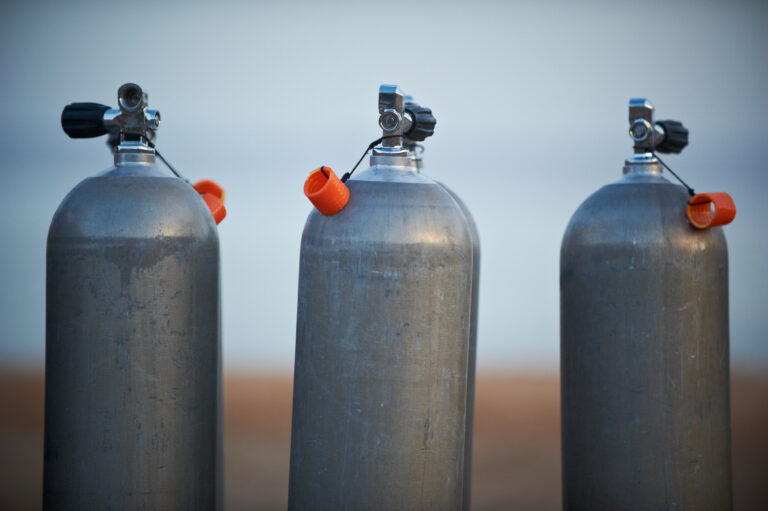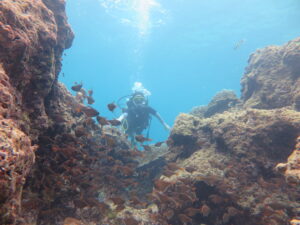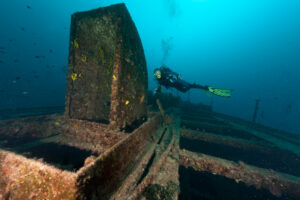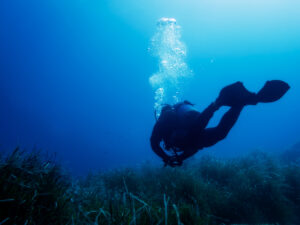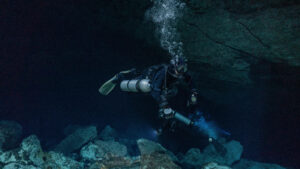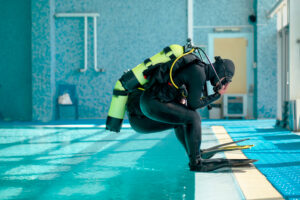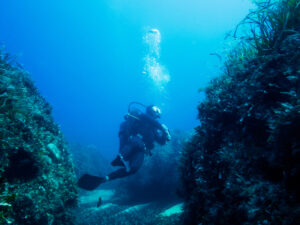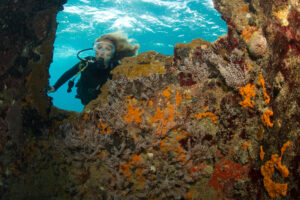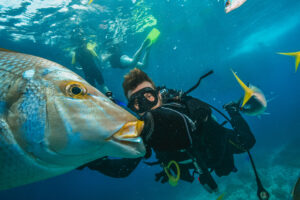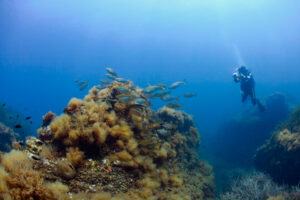What is a Certification Agency?
A certification agency is an organization responsible for training and certifying individuals to scuba dive safely and competently. These agencies develop, maintain, and disseminate standardized educational materials and guidelines for scuba diving instruction. They also issue certifications to divers who successfully complete their courses and demonstrate the required knowledge and skills. The most renowned and widely recognized certification agencies include PADI (Professional Association of Diving Instructors), NAUI (National Association of Underwater Instructors), and SSI (Scuba Schools International). With over 100 certification agencies worldwide, it is essential for divers to ensure they choose a recognized and reputable organization to obtain their scuba diving certification.
History of Certification Agencies
The birth of scuba diving certification agencies can be traced back to the 1950s, with the development of the first underwater breathing apparatus – the Aqua-Lung, by Jacques-Yves Cousteau and Emile Gagnan. The introduction of this technology led to a surge in recreational scuba diving, and it soon became apparent that there was a need for standardized training and education to ensure the safety of participants.
In 1959, NAUI was formed as the first non-profit organization dedicated to scuba diving training and certification. NAUI’s primary objective was to promote safe and responsible diving through comprehensive education programs. PADI followed in 1966, with a focus on making scuba diving accessible to a broader audience. SSI was established in 1970, emphasizing the importance of quality education and training at the core of its philosophy.
The Role of Certification Agencies
Certification agencies play a crucial role in the scuba diving community by ensuring that divers receive proper training, enabling them to enjoy the underwater world safely and responsibly. The agencies achieve this through several key functions:
- Curriculum Development: Certification agencies create and maintain a comprehensive and up-to-date curriculum for various levels of scuba diving, from beginner to professional. This includes theoretical knowledge, practical skills, and safety guidelines.
- Instructor Training and Certification: The agencies train and certify scuba diving instructors to teach their specific curriculum. This ensures that instructors are knowledgeable, skilled, and adhere to the agency’s teaching standards.
- Diver Certification: Upon successful completion of a scuba diving course, the certification agency issues a certification card to the diver. This card serves as proof of the diver’s training level and competence, allowing them to rent equipment, join dive trips, and participate in advanced training courses.
- Quality Assurance: Certification agencies monitor and maintain the quality of their affiliated dive centers and instructors. They may conduct periodic evaluations and provide ongoing support to ensure that high standards are upheld.
International Recognition and Validity
While there are over 100 scuba diving certification agencies worldwide, not all certifications are universally recognized. Some agencies are more established and respected than others, and their certifications are more widely accepted. PADI, NAUI, and SSI are examples of globally recognized agencies, and their certifications are generally accepted by dive centers and operators around the world.
In an effort to standardize scuba diving training and certification internationally, several organizations have collaborated to create the World Recreational Scuba Training Council (WRSTC). This council comprises representatives from various certification agencies, including PADI, NAUI, and SSI. The WRSTC establishes minimum training standards that member agencies must adhere to, ensuring a consistent level of competency among certified divers.
Choosing the Right Certification Agency
When selecting a certification agency for scuba diving training, it is essential to consider the following factors:
- Recognition and Validity: Choose an agency with internationally recognized certifications to ensure that your certification will be accepted at dive destinations worldwide.
- Course Structure and Content: Research the curriculum and teaching methods of different agencies to find one that best suits your learning style and goals.
- Instructor Quality: Look for an agency that prioritizes instructor training and maintains high teaching standards. This will ensure that you receive proper guidance and support throughout your diving education.
- Dive Center Affiliation: Consider the availability of dive centers affiliated with the certification agency in your area or your preferred diving destinations. This will ensure that you have access to ongoing training, equipment rental, and dive trips.
- Environmental Commitment: Some agencies have strong commitments to marine conservation and environmental stewardship. If these values align with yours, consider choosing an agency that actively promotes and supports such initiatives.
Continuing Education and Advanced Certifications
Certification agencies offer various courses and certifications beyond the entry-level Open Water Diver certification. These advanced courses allow divers to expand their skills, knowledge, and experience in different aspects of scuba diving. Examples of advanced certifications include:
- Advanced Open Water Diver: This course focuses on building confidence and expanding diving skills through a series of adventure dives, including deep diving, navigation, and more.
- Rescue Diver: This course trains divers to manage diving emergencies, prevent accidents, and assist other divers in distress.
- Specialty Courses: These courses enable divers to explore specific areas of interest, such as wreck diving, underwater photography, or nitrox diving.
- Divemaster and Instructor: For those who wish to pursue a career in the diving industry, certification agencies offer professional-level courses, including Divemaster, Assistant Instructor, and Open Water Scuba Instructor.
Key Takeaways
Certification agencies play a crucial role in ensuring the safety, education, and enjoyment of scuba divers worldwide. By choosing a reputable and recognized agency for your scuba diving training, you can be confident in your skills and knowledge as you explore the underwater world. As you progress in your diving journey, consider taking advantage of the various advanced courses and certifications offered by these agencies to further enhance your skills and experiences.

